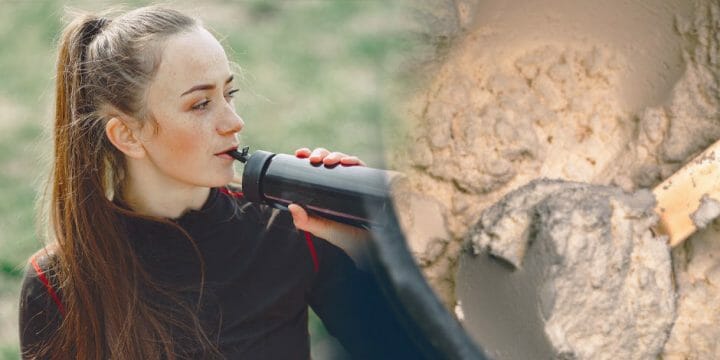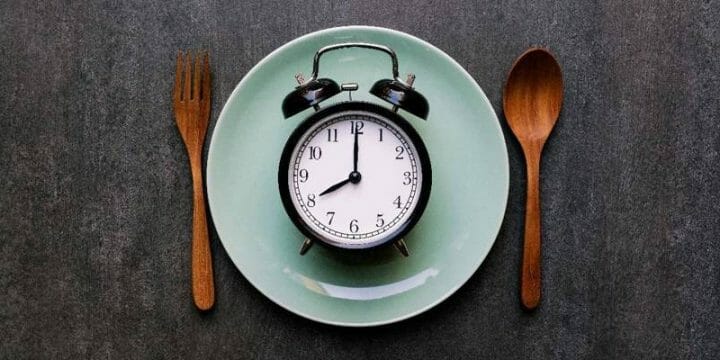Do you believe that timing your creatine intake could give your workouts an extra boost?
As a medical doctor, I created an easy-to-follow guide that explains everything you need to know about taking creatine on an empty stomach or after eating.
Together with my team, we tested creatine intake for both of these unique scenarios.
Keep reading to uncover the science behind when and how to take creatine to get the most out of your fitness regimen.
Quick Summary
- Taking creatine on an empty stomach is safe and recommended by doctors because it is absorbed faster.
- There are three different types of creatine, namely creatine monohydrate, creatine malate, and creatine citrate.
- A study in "Neuropsychology" found that vegetarians supplementing with creatine showed improved brain function, highlighting its potential cognitive benefits beyond muscle health.
- From personal experience and research, taking high-quality creatine supplements on an empty stomach may offer the best results, especially for those following a fasted training strategy.
Should You Take Creatine On An Empty Stomach?

From my personal journey and after analyzing numerous research studies and patient feedback, I've come to believe that taking high-quality creatine supplements on an empty stomach might offer the best results.
Creatine absorbs faster on an empty stomach, as there's less digestive competition. This speedy absorption could enhance muscle performance, especially for fasted morning workouts.
Many avoid eating right before or after workouts, so timing creatine intake for an empty stomach offers flexibility. However, it may cause nausea in those with sensitive stomachs. A slice of toast can help, instead of a large meal.
And, there is some anecdotal evidence that it might cause an insulin spike with diabetics, so keep that in mind.
- Faster absorption and delivery to muscles
- Ideal for timing creatine uptake around workouts
- Provides more flexibility for fasted exercising
- May impact the body’s insulin response
- Can cause some stomach upset
3 Different Types Of Creatine

1. Creatine monohydrate
Having tried various forms of creatine, I've found that Creatine monohydrate is a staple in many workout supplements. Despite its cost-effectiveness, its efficacy in muscle recovery remains commendable, standing toe-to-toe with its pricier counterparts.
2. Creatine Malate
Some people say that this type of creatine is more stable, making it more suitable for performance supplements. However, we haven’t been able to find any studies that confirm this.
3. Creatine Citrate
This is also a relatively cheap form, but our experience has been that it's several times more likely to cause stomach upset and gas.
Not ideal for your time at the gym.
“Creatine bloating is a phenomenon that most often occurs during the loading phase when beginning to supplement with creatine.”
- Gavin Van De Walle, MS, RD
If you don't know where to start, check out our list of the best creatine brands.
Creatine: A Special Note for Vegetarians and Vegans
For those who've chosen a vegetarian or vegan lifestyle, creatine supplementation can offer unique benefits.
Dietary creatine is primarily found in meat, leading to vegetarians and vegans often having lower creatine levels in their muscles.
But it's not just about muscles. A study in the journal "Neuropsychology" found that vegetarians who supplemented with creatine showed improved brain function, hinting at its potential cognitive benefits.
So, if you're avoiding meat, consider creatine supplementation not just for muscle health but potentially for brain wellness too.
What Are The Side Effects?

Side effects are possible with any type of workout supplement, but the FDA has classified creatine to be generally safe.
Many sports nutrition organizations say that anything up to 30 grams per day is safe [1].
Larger doses may also cause some stomach upset, but we would recommend breaking it down into smaller doses and taking creatine several times a day.
The other thing we have noted is that some people who take creatine late in the day may find that it affects their sleep.
And with sleep being an important part of your recovery, that’s not something you want to encounter.
Is Creatine Less Effective When Taken With Food?

We’ve had some readers ask about supplement products like creatine and pre-workout and if they lose some of their effectiveness when taken with a meal.
The simple answer is no.
But, there’s always a but.
When you take any type of protein with or after a meal, then your stomach will take longer to fully absorb it all.
Depending on how large your meal is, this could then take more than an hour or two.
However, all the creatine will eventually make it into your muscles, but it could delay the workout recovery process.
Should You Take Creatine Every Day?

Unlike a pre-workout supplement, we haven’t found that exercise performance suffers after a while of taking creatine daily.
Once you’ve gone through a few weeks, your body will retain certain creatine levels. And because your body needs a constant supply of creatine, we haven’t found any issues with daily creatine supplementation.
If anything, it might ensure that your muscle mass improves at a more consistent pace to get you to your body composition goals.
Depending on how large your meal is, this could then take more than an hour or two. However, all the creatine will eventually make it into your muscles, but it could delay the workout recovery process.
Getting Your Creatine Intake Right

Here are the three tips we got from a nutritionist when it comes to getting the most out of your creatine plans.
1. The Best Timing
Unless you have sensitive bowels, we think the best time to take creatine is on an empty stomach just before or after a resistance training workout.
It has given us the most consistent results, as your stomach may be able to process amino acids faster.
2. The Right Dosage
Unless you’re heading into a loading phase, nutritionists generally recommend that you take 3 to 5 grams of creatine per day mixed with 8 ounces of water. Anything more than that won’t get to your muscles and would just be flushed out through your kidneys.
3. Off-Cycles
This is always a hot topic, and with some protein and pre-workout products, it’s a good idea.
However, we haven’t found any research that suggests a creatine off-cycle is necessary, and that probably comes down to this fact.
Your body needs creatine for muscle strength and recovery and will always try to fill reserves as much as possible.
Related posts:
References:
- https://jissn.biomedcentral.com/articles/10.1186/s12970-017-0173-z
About The Author
You May Also Like






